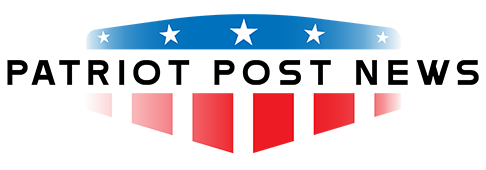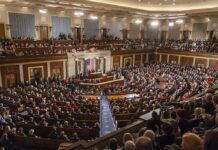
Trump’s FDA tightens the reins on COVID vaccine manufacturers, restricting access and requiring rigorous new trials that could leave many Americans without updated protection against emerging virus strains.
Key Takeaways
- The FDA has instructed COVID vaccine manufacturers to update their formulations to target the LP.8.1 strain for fall 2025, which currently accounts for 70% of US cases.
- The Trump administration has implemented a new regulatory framework that restricts COVID vaccine access to high-risk individuals and requires placebo-controlled trials for healthy adults under 65.
- Novavax faces production challenges meeting the LP.8.1 target due to longer manufacturing times, while Moderna and Pfizer can more easily adapt with mRNA technology.
- The FDA is requiring expanded warning labels for Pfizer and Moderna vaccines regarding myocarditis risk, despite reports of such cases decreasing significantly since 2021.
- COVID-19 continues to cause an estimated 30,000-50,000 deaths and 260,000-430,000 hospitalizations annually, primarily affecting those over 65 and infants under six months.
Trump Administration Limits Vaccine Access While Virus Continues to Evolve
The FDA’s Vaccines and Related Biological Products Advisory Committee (VRBPAC) has recommended targeting the LP.8.1 strain of COVID-19 for fall 2025 vaccines, following significant debate about updating vaccine formulations. This strain, a subvariant of JN.1, represents approximately 70% of current US cases. The decision aligns with recommendations from the European Medicines Agency but differs from the World Health Organization, which had suggested manufacturers could use JN.1, KP.2, or update to LP.8.1 strains. The committee’s decision comes amid sweeping changes to vaccine policy under President Trump’s administration that will significantly restrict who can receive updated vaccines.
“Our goal is not to impact the timely availability of vaccines, but we’re really looking to all of you to give us your best judgment in terms of the optimal strain to bring forward,” said David Kaslow, director of the FDA’s Office of Vaccines Research and Review.
Some members of the Vaccines and Related Biologics Products Advisory Committee worried that a strain change would require new testing that could delay delivery of vaccines for the fall. https://t.co/0A1QrurBs3
— STAT (@statnews) May 22, 2025
New Regulatory Framework Creates Hurdles for Manufacturers
The new regulatory framework introduced by the Trump administration represents a significant shift in COVID-19 vaccination policy. Under these guidelines, COVID vaccines may only be available to high-risk individuals, such as the elderly and immunocompromised. Additionally, manufacturers will be required to conduct new clinical trials in younger, healthy adults to continue offering vaccines to the general population. These trials would need to be placebo-controlled, a substantial change from previous requirements that focused on antibody response data. The framework also mandates that manufacturers produce human immunogenicity data for updated products, potentially delaying vaccine availability.
The policy changes were announced without seeking independent guidance from expert committees, raising concerns among public health officials. While Moderna and Pfizer-BioNTech are relatively well-positioned to adapt to the LP.8.1 strain due to their mRNA technology, Novavax faces significant challenges. The protein-based vaccine manufacturer may need to use an older virus version due to its longer production lead time, potentially reducing its effectiveness against current variants. Despite these obstacles, Novavax representatives indicated they could potentially meet the timeline, though with considerable strain on their resources.
Expanded Warning Labels Despite Decreasing Risk
In a move that has puzzled some public health experts, the FDA is requiring expanded warning labels for Pfizer and Moderna vaccines regarding the risk of myocarditis, despite data showing that reports of myocarditis following COVID vaccination have decreased significantly since 2021. This requirement comes as the administration has taken a notably less aggressive approach to booster shots overall. The expanded warnings will highlight the rare but serious side effect, even as the risk appears to be diminishing with newer formulations and as natural immunity in the population increases.
COVID-19 Continues to Pose Significant Health Risks
Despite the policy shifts restricting vaccine access, COVID-19 continues to cause significant mortality and morbidity in the United States. An estimated 30,000 to 50,000 deaths and 260,000 to 430,000 hospitalizations have occurred since October last year, with disproportionate impacts on those over 65 and children under six months. While most Americans have some level of infection-induced immunity, experts note that this protection wanes over time, making ongoing vaccination an important strategy for vulnerable populations. The effectiveness of the 2024-25 vaccines in children remains uncertain due to low coverage and disease levels.
“For transparency,” said Dr. Arnold Monto, acting chair of the advisory committee, when discussing the divided opinions among committee members regarding strain selection.
The United States currently has three approved COVID-19 vaccines: Pfizer-BioNTech, Moderna, and Novavax. With the new restrictions and requirements in place, Americans may face a more limited selection of updated vaccines this fall, potentially leaving many without access to the most current protection against emerging variants. The Trump administration’s approach represents a significant departure from previous vaccination strategies, prioritizing concerns about side effects and emphasizing natural immunity over widespread vaccine availability.

























